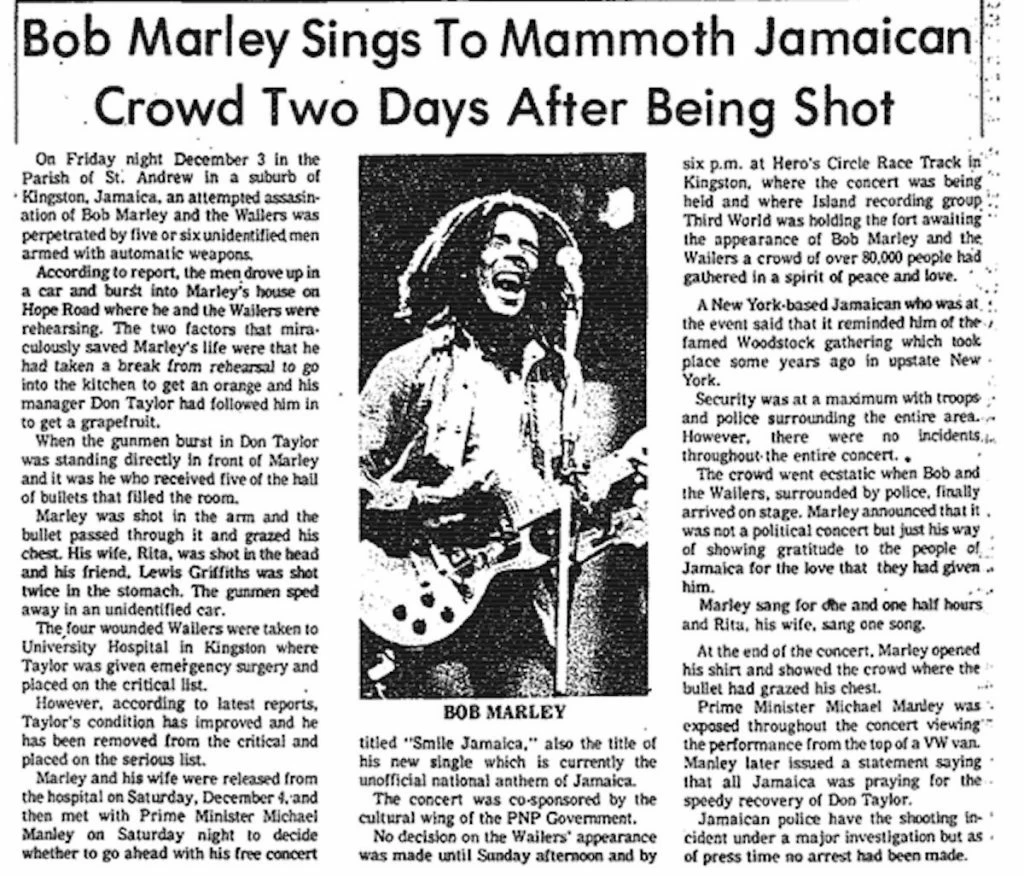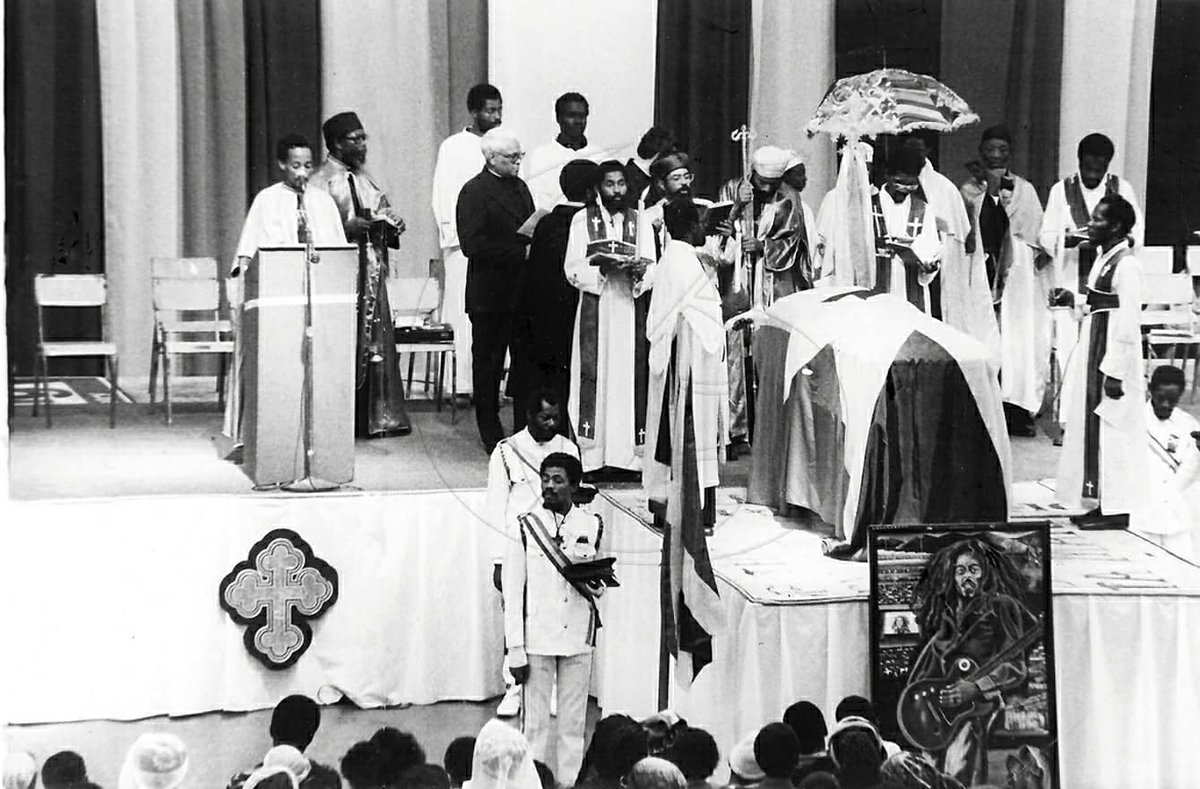Bob Marley's death day remains a poignant moment in music history, marking the end of an era for reggae and a life dedicated to spreading peace and unity. On May 11, 1981, the world lost a legendary musician whose impact transcends generations. His music, activism, and spiritual journey continue to inspire millions globally. This article delves into the life and legacy of Bob Marley, exploring the significance of his death day and the enduring influence he left behind.
As we reflect on the life and contributions of this iconic artist, it is essential to understand the profound effect his passing had on the world. Bob Marley's death day is not just a date in history; it represents the culmination of a life devoted to music, love, and justice. His message continues to resonate with people of all ages and backgrounds, making his legacy timeless.
Through this article, we aim to provide a comprehensive look at Bob Marley's life, from his early beginnings to his untimely death. By examining the events surrounding his death day and the lasting impact of his work, we honor his memory and celebrate the universal themes he championed. Join us as we explore the life and legacy of one of the most influential musicians of all time.
Read also:Understanding Osha Safety Your Comprehensive Guide To Workplace Security
Biography: The Life and Times of Bob Marley
| Full Name | Robert Nesta Marley |
|---|---|
| Date of Birth | February 6, 1945 |
| Place of Birth | Nine Mile, Saint Ann Parish, Jamaica |
| Date of Death | May 11, 1981 |
| Place of Death | Miami, Florida, United States |
| Occupation | Singer, Songwriter, Activist |
| Spouse | Rita Marley |
| Children | 12 children (including Ziggy Marley, Damian Marley) |
Who Was Bob Marley Before He Became Famous?
Bob Marley's journey began in the small village of Nine Mile in Saint Ann Parish, Jamaica. Born to a Jamaican mother, Cedella Booker, and a British father, Norval Marley, his early life was marked by challenges and resilience. Growing up in a racially mixed household, Marley faced discrimination but used these experiences to fuel his music and message of unity. His early exposure to music came from local musicians and the vibrant sounds of ska and rocksteady, which would later evolve into reggae.
How Did Bob Marley Achieve Fame?
Marley's rise to fame was gradual but inevitable. In the 1960s, he formed the Wailers with friends Peter Tosh and Bunny Wailer, and together they revolutionized the reggae genre. Hits like "No Woman, No Cry" and "Stir It Up" brought international attention to their music. Marley's distinctive voice, coupled with his powerful lyrics, resonated with audiences worldwide, making him a global icon. His ability to blend music with social and political messages set him apart from his contemporaries.
What Led to Bob Marley's Death Day?
Bob Marley's death day was the result of a relentless battle with cancer. The illness was first detected in 1977 when he developed a malignant melanoma under a toenail. Despite recommendations to have the toe amputated, Marley refused due to his Rastafarian beliefs. Over time, the cancer spread, leading to complications that ultimately claimed his life on May 11, 1981, in Miami, Florida. His death day remains a somber reminder of the fragility of life and the importance of health.
Why Is Bob Marley's Death Day Significant?
Bob Marley's death day is significant not only because it marks the end of a remarkable life but also because it highlights the legacy he left behind. His music continues to inspire millions, transcending cultural and linguistic barriers. The themes of love, equality, and justice that he championed remain relevant today. On his death day, fans and admirers worldwide pay tribute to his life and work, ensuring his message lives on.
What Lessons Can We Learn From Bob Marley's Death Day?
Bob Marley's death day teaches us the importance of living life with purpose and passion. His commitment to his beliefs and his unwavering dedication to spreading positivity serve as a beacon of inspiration. By reflecting on his life and work, we can draw valuable lessons about the power of music, the importance of unity, and the need for social justice. His legacy reminds us that even in death, one's impact can continue to shape the world.
Bob Marley's Musical Contributions
Bob Marley's contributions to music are immeasurable. His ability to merge traditional Jamaican rhythms with global influences created a unique sound that resonated with audiences worldwide. Songs like "One Love," "Redemption Song," and "Get Up, Stand Up" became anthems for peace and justice. His music not only entertained but also educated and empowered listeners, making him a cultural icon.
Read also:Experience The Ultimate Comfort At Staybridge Suites In Glendale
What Are Some of Bob Marley's Most Influential Songs?
- "No Woman, No Cry" – A timeless classic that speaks to love and resilience.
- "Redemption Song" – A powerful ballad about freedom and liberation.
- "Three Little Birds" – An uplifting anthem of hope and positivity.
- "Buffalo Soldier" – A tribute to the forgotten heroes of history.
How Did Bob Marley's Music Influence Reggae?
Bob Marley's influence on reggae is unparalleled. He transformed the genre from a local phenomenon into a global movement, bringing attention to Jamaican culture and its rich musical traditions. His innovative approach to songwriting and his ability to convey deep emotions through music set new standards for the industry. Today, reggae continues to thrive, thanks in large part to Marley's pioneering efforts.
Bob Marley's Legacy Beyond Music
Bob Marley's legacy extends far beyond his music. He was a symbol of hope and resilience, using his platform to advocate for social justice and equality. His commitment to the Rastafarian movement and his belief in the power of love and unity inspired countless individuals to strive for a better world. Even decades after his death day, his influence continues to grow, reaching new generations of fans.
How Has Bob Marley's Death Day Been Honored Over the Years?
Bob Marley's death day is commemorated annually through various events and tributes around the world. Fans gather to celebrate his life and work, often organizing concerts, exhibitions, and educational programs in his honor. These celebrations serve as a reminder of his enduring impact and the universal themes he championed throughout his life.
What Can We Do to Continue Bob Marley's Legacy?
To continue Bob Marley's legacy, we can embrace the values he stood for and incorporate them into our daily lives. By promoting peace, love, and unity, we honor his memory and ensure his message remains relevant. Supporting causes he believed in, such as social justice and environmental sustainability, is another way to keep his legacy alive. Through our actions, we can help perpetuate the positive change he sought to inspire.
Conclusion: Remembering Bob Marley on His Death Day
Bob Marley's death day is a time for reflection and celebration. While his passing was a tragic loss, his music and message continue to inspire millions worldwide. By remembering his life and work, we honor his legacy and ensure that his vision of a better world lives on. As we celebrate Bob Marley's contributions to music and humanity, let us strive to embody the values he cherished and continue to make a difference in the world.
Table of Contents
- Biography: The Life and Times of Bob Marley
- Who Was Bob Marley Before He Became Famous?
- How Did Bob Marley Achieve Fame?
- What Led to Bob Marley's Death Day?
- Why Is Bob Marley's Death Day Significant?
- What Lessons Can We Learn From Bob Marley's Death Day?
- Bob Marley's Musical Contributions
- What Are Some of Bob Marley's Most Influential Songs?
- How Did Bob Marley's Music Influence Reggae?
- Bob Marley's Legacy Beyond Music


